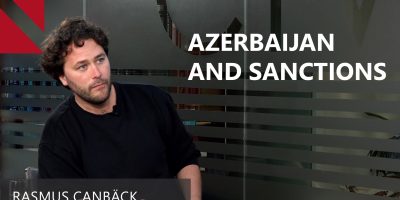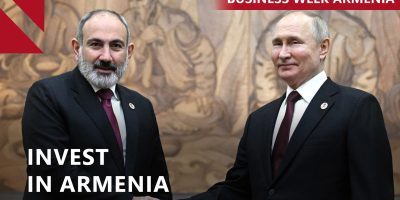
Liz Fuller, an analyst and reporter on the South Caucasus, explains to Civilnet how the wording and tone of these statements has changed year by year. She does not rule out an escalation of the conflict.
Liz Fuller studied Russian and Georgian at the University of London. She worked for many years as a research analyst and editor for Radio Free Europe/Radio Liberty, first in Munich and then in Prague.
-Do you see any evolution since the first statement was adopted at the G-8 meeting in Italy in 2009?
-Yes I do, in that they have become progressively more explicit, detailed, and toughly worded. The 2009 L’Aquila statement was adopted when hopes of an Armenian-Turkish rapprochement were at their highest. It contained an explicit set of proposals intended to serve as a basis for further negotiations – the revised Madrid proposals – and simply called on both sides to endorse them.
The Muskoka statement one year later was very similar. It noted the commitment by Armenia and Azerbaijan that “a lasting settlement must be based upon the Helsinki Principles and the elements that we proposed in connection with our statement at the L’Aquila Summit.” It then simply called on the two sides “to take the next step and complete the work on the Basic Principles to enable the drafting of a peace agreement to begin.”
The 2011 Deauville statement was longer and much more explicit. It stressed that the conflict must be resolved peacefully and called on Armenia and Azerbaijan “to take a decisive step” towards doing so. It also called on the two countries’ presidents to “prepare their populations for peace not war;” to “move beyond the unacceptable status quo;” and “to show political will” and finalize the so-called Basic Principles at the planned meeting in Kazan just a few weeks later between presidents Aliyev, Sargsyan and Medvedev.
This year’s statement at Los Cabos for the first time expressed “regret”, which is a diplomatic term for disappointment or even frustration, that the two presidents did not finalize the Basic Principles in Kazan as the 2011 Deauville statement had urged them to do.
It called on them to ”refrain from maximalist positions in the negotiations, respect the 1994 ceasefire agreement, and abstain from hostile rhetoric that increases tension,” all of which reproaches apply more to Azerbaijan than to Armenia. It warns again that the conflict cannot be resolved by military force. And it stresses that peace will depend ultimately upon the parties’ willingness to seek an agreement based on mutual understanding, rather than one-sided advantage, which I interpret as a clear rejection of the argument by some senior Azerbaijani officials that the 2011 Deauville characterization of the status quo as unacceptable means that Armenia, but not Azerbaijan, must make immediate substantial concessions.
-Armenia’s first president, Levon Ter-Petrosyan, said this week that the wording of the Los Cabos statement was tougher than the previous three. He also hinted that the Minsk Group format might can be replaced in order to enforce a peace in the region, with the European Union replacing France. How realistic is such a change of negotiation format?
Clearly former President Ter-Petrosyan and I share the same passion for semantic analysis and have come to similar conclusions regarding the four successive G-8 statements.
But I would question the likelihood that the Minsk Group format is likely to be changed, or that the US, Russia and the EU may jointly take over responsibility from the Minsk Group, although Mr. Ter-Petrosyan may have access to information that I do not.
True, Azerbaijan has for years cast doubts on the effectiveness of the Minsk Group and suggested that the EU play a greater role, but EU Special Representative for the South Caucasus Philippe Lefort said explicitly late last month that the EU considers the OSCE Minsk Group the optimum mediator.
And as Dennis Sammut, who heads the British NGO LINKS, wrote a couple of years ago, if you change the mediation format dramatically and effectively begin again from the beginning, you lose a lot of time while the new mediators familiarize themselves with both what has been achieved, what approaches don’t work, and the personalities of the officials who represent the conflict sides in the talks.
-The South Caucasus has embarked on a series of elections. Armenia held parliamentary elections last month, and a presidential election is due in February. Nagorno Karabakh is electing its president next month, and Azerbaijani President Ilham Aliyev’s second term expires in the fall of 2013. Such elections inevitably impact negatively on the ongoing Karabakh peace process. Do you think there will be a new opportunity to move forward after the 2013 elections are over?
-Theoretically, if either Armenia or Azerbaijan wanted a formal peace agreement at all cost, meaning that if either leader considered his country’s long-term well-being worth sacrificing his own chances of re-election for, then the fact that an election was approaching would not deter him. The problem is that they are not that altruistic. So the approach of elections becomes a convenient excuse to put the peace process on hold, and unfortunately the mediators concur with this approach.
That said, certainly there will be a hypothetical window of opportunity to make progress after the 2013 presidential elections in Armenia and Azerbaijan. Whether the two presidents will take advantage of that window of opportunity is an entirely different question.
-You have been watching and reporting on the Karabakh conflict for over 20 years. How do you assess the current state of negotiations? Are we closer to peace now than 10-15 years ago, or we are moving far away from peace?
-I would say there have been several occasions when there were very good prospects for peace. The first was in the summer and fall of 1997 when the Minsk Group was intensely involved and came up with three successive proposals which might have served as a basis for peace. The second was Key West. The third was in 2006-2008, with the evolution of the Basic and then the Madrid principles that served as the basis for very detailed negotiations on the chronology and logistics of a peace settlement.
By contrast, I would say we have now entered a phase of moving gradually away from the possibility of a formal peace agreement.
-Thomas de Waal has said he thinks a new war could start in 3-5 years. Do you think this time frame is realistic?
-When we discuss the possibility of a resumption of hostilities, we need to be very careful to specify whether we are talking about a deliberate new war, meaning a major offensive by Azerbaijan, or an “accidental” conflict, meaning that a flare-up of fighting like the one in early June could spiral out of control faster than efforts could be made to contain and localize it.
Those analysts who think Azerbaijan will at some point deliberately start a new war tend to point to the fact that Azerbaijan’s revenues from the export of oil and gas are likely to peak in the next few years. It is also conceivable that the pattern we have seen over the past three years of far more frequent attempts by Azerbaijani forces to penetrate the Line of Contact, and the geographical spread of such attempts and other ceasefire violations by Azerbaijan, is part of an in-depth study of the weak points in the Armenian line of defense in preparation for a deliberate large-scale offensive.
Veteran US diplomat Wayne Merry, who recently visited the Line of Contact, argues that we have seen a shift from a state of quasi-peace to one of quasi-war, and he does not rule out the possibility of that quasi-war becoming a real one.
In the short term, I tend to think the danger of an accidental war is greater than that of a deliberate one. From that point of view, Thomas de Waal’s timeframe of three to five years seems more likely in terms of a deliberate new offensive by Azerbaijan, while an “accidental” war could happen even sooner.
















